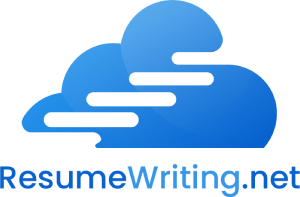Job interviews are inherently nerve-wracking, particularly when you’re faced with open-ended questions like, “What motivates you?” At first glance, this question seems simple, but it can be surprisingly difficult to answer in a way that impresses your potential employer. The question is designed to assess not just your passions and drive but also how well you align with the company’s culture and the role you’re applying for. In this blog, we’ll explore how to craft a compelling answer that resonates with interviewers.
Understanding the Purpose Behind the Question
Before diving into how to answer the question, it’s crucial to understand why it’s being asked. Employers and hiring managers want to gauge several key aspects:
- Cultural Fit: They’re interested in knowing if your motivations align with the company’s values and mission. For instance, if the company values teamwork but you’re motivated primarily by individual achievements, this could signal a potential misalignment.
- Passion and Drive: Your response gives insight into what gets you excited about your work. Employers want to know if you’re passionate about the role or if you’re just looking for a paycheck.
- Self-Awareness: The question also tests your self-awareness. Do you know what drives you? Are you thoughtful about your career goals?
- Consistency: Finally, your answer should align with the rest of your interview responses. If you say you’re motivated by helping others, but your work history suggests a focus on solitary tasks, this inconsistency could raise red flags.
Crafting Your Answer: The Key Components
To craft an answer that stands out, focus on the following components:
1. Identify Your Core Motivators
Start by reflecting on what genuinely drives you in your professional life. These could be internal factors like personal growth, creativity, or the satisfaction of solving complex problems. They could also be external factors like recognition, financial rewards, or the desire to help others.
Examples:
- Challenge and Growth: “I’m motivated by the opportunity to learn new things and tackle challenging projects. I find it fulfilling when I can stretch my abilities and grow professionally.”
- Impact: “Knowing that my work makes a difference, whether it’s in the community or within the organization, is a huge motivator for me.”
- Recognition: “I’m driven by the recognition of my efforts. Whether it’s through formal accolades or simple acknowledgment from my peers and superiors, it keeps me motivated to excel.”
2. Align Your Motivations with the Job
Once you’ve identified your core motivators, the next step is to align them with the role you’re applying for. Research the company and the job description thoroughly. What does the company value? What are the key responsibilities of the role? Your answer should demonstrate that your motivations are not only genuine but also a good fit for the job.
Example: If you’re applying for a role in a fast-paced tech startup, you might say, “I’m motivated by the opportunity to work in environments where I can contribute to innovative solutions. The fast-paced nature of this company, combined with its focus on cutting-edge technology, aligns perfectly with my drive to be at the forefront of industry advancements.”
3. Use Specific Examples
To make your answer more compelling, back it up with specific examples from your past experiences. This shows that you’re not just saying what the interviewer wants to hear; you genuinely live by these motivations.
Example: “I’m motivated by continuous learning and growth. For instance, in my last role, I took the initiative to lead a project that was outside my usual scope of work. It required me to learn a new programming language on the fly, but I found the challenge exciting, and it resulted in a 20% increase in productivity for the team.”
4. Demonstrate Self-Awareness and Reflection
Show that you’ve thought deeply about what motivates you and that you understand how these drivers impact your work. This not only demonstrates maturity but also shows that you’re deliberate about your career choices.
Example: “I’ve noticed that I’m most motivated when I can see a direct impact of my work on the team’s success. This self-awareness has guided me to seek out roles where I can work closely with others and contribute to collective goals.”
Common Pitfalls to Avoid
While crafting your answer, be mindful of these common mistakes:
- Being Too Generic: Saying something like “I’m motivated by success” is too vague and doesn’t offer any real insight into your personality or work style.
- Focusing Only on Money: While financial rewards can be a motivator, focusing solely on them can give the impression that you’re not genuinely interested in the role itself.
- Ignoring the Company’s Values: If your answer doesn’t align with what the company values, it could suggest that you’re not a good cultural fit.
- Overly Long Answers: Keep your response concise and to the point. Rambling can dilute your message and make you seem less confident.
Sample Answers to “What Motivates You?”
Here are a few examples to help you craft your own answer:
Example 1: “I’m motivated by the opportunity to solve complex problems. In my previous role as a software engineer, I enjoyed diving into challenging projects where I could use my analytical skills to find innovative solutions. The sense of accomplishment I get from resolving issues and improving systems drives me to continually push my boundaries.”
Example 2: “Helping others achieve their goals is a significant motivator for me. Whether it’s mentoring a colleague or working directly with clients, I find it incredibly fulfilling to know that I’ve made a positive impact on someone’s professional journey. This is why I’m particularly excited about this role in customer success, where I can combine my technical expertise with my passion for supporting others.”
Example 3: “I’m driven by continuous learning and professional growth. I thrive in environments where I can be challenged and have the opportunity to acquire new skills. For example, in my last role, I took several advanced courses in data analytics to better understand our customer data, which led to a 15% increase in customer retention rates.”
Final Thoughts
Answering the question “What motivates you?” effectively requires introspection, research, and a clear understanding of the role and company. By identifying your core motivators, aligning them with the job, using specific examples, and demonstrating self-awareness, you can craft a response that not only answers the question but also leaves a lasting impression on your interviewer. Remember, the goal is to show that your motivations are a natural fit for the role and that you’ll bring enthusiasm and drive to the position. It will also help if you have a list of questions to ask the hiring manager during the interview and have some ideas regarding the best questions to ask at the end of an interview.


